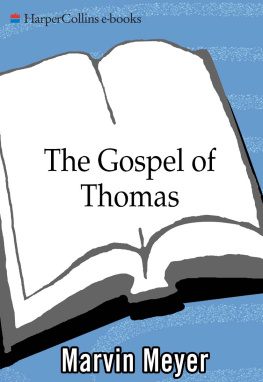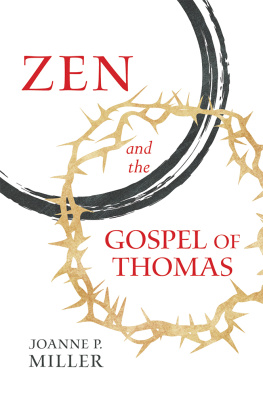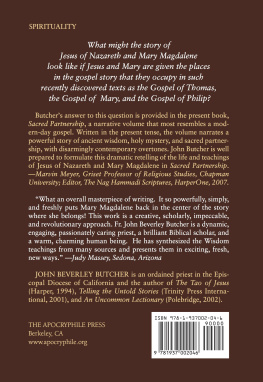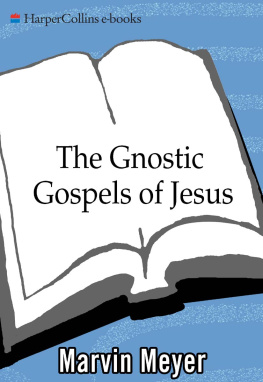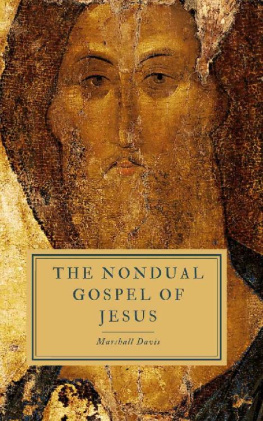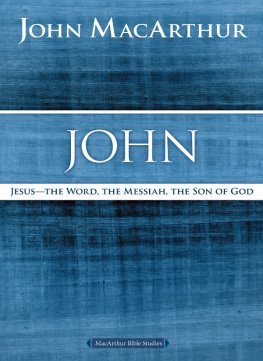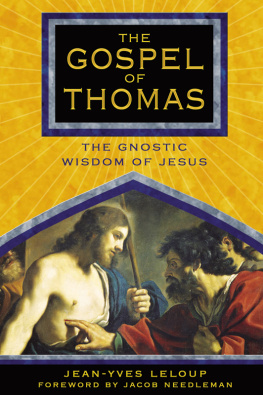C opyright 2007 by John R. Mabry. Originally published in 2007 by O Books, an imprint of John Hunt Publishing, Ltd. Apocryphile edition, 2015 .
All rights reserved. No part of this book may be reproduced, stored in a retrieval system, or transmitted in any form or by any meanselectronic, mechanical, photocopy, recording, or otherwisewithout written permission of the author and publisher, except for brief quotations in printed reviews .
Other books by John R. Mabry
S piritual Guidance Across Religions: Providing Spiritual Counsel to People of Differing Faith Traditions
A Christian Walks in the Footsteps of the Buddha
Faithful Generations: Effective Ministry Across Generational Lines
Growing Into God: A Beginners Guide to Christian Mysticism
Salvation of the True Rock
People of Faith: An Interfaith Companion to the Revised Common Lectionary
The Monster God
Noticing the Divine: An Introduction to Interfaith Spiritual Guidance
Faith Styles: Ways People Believe
God Has One Eye: The Mystics of the Worlds Religions
God is a Great Underground River
I Believe in a God Who is Growing
Crisis and Communion
Heretics, Mystics & Misfits: A Sermon Cycle
God As Nature Sees God: A Christian Reading of the Tao Te Ching
Introduction
The story of the Gospel of Thomas
N ell appeared at our church looking like a cat caught in the headlights. A couple of times she looked like she was ready to jump out of her skin, so I took care not to surprise her. At coffee hour after the service she asked if she could speak to me privately, so I showed her into my office and asked what I could do .
I dont know why Im here, she confided. I dont believe any of this Jesus stuff anyway .
I asked her exactly which Jesus stuff she was referring to .
You know, she said, miracles, and that stuff about dying for our sins and rising from the dead. And all the politics of the churchwhat theyve turned him into. It makes me want to gag. I mean, I love Jesus, I love what he taught, what he stood forbut what theyve done to him? No thanks .
I smiled and nodded, You and me both. She looked surprised. I leaned in and, in a conspiratorial whisper, said, What if I told you that scholars now have in their possession sayings of Jesus which have been kept secret for almost fifteen hundred yearssayings which comprise the earliest and most reliable gospel we know of, and that in it there is not a single mention of a miracle. Not only that, but there is no mention of either a crucifixion or a resurrection ?
Id say you were pulling my leg, she breathed, enthralled .
Have you ever read The Gospel of Thomas ?
Nell is not alone. I have heard nearly identical objections from many people at our church and amongst my students. I myself have struggled with the version of Jesus sold by the institutional church. For years I have asked myself, how can I follow Jesus with integrity when it does not seem like the Jesus I have been given by my tradition has any? How can I entrust myself to a tradition I simply do not trust ?
Many of us are searching for a trustworthy Jesus, one that does not insult us, treat us as children, or enslave us. We want to know how to save our souls without selling them, but that is no easy task. We are suspicious of the institutional churches which often seem to put political realities before human compassion, and the imperial Jesus they offer just rings false .
The Gospel of Thomas is not an authoritative cure for the disinformation proffered by the traditions we have inherited, but it certainly does provide food for thought and a much-needed corrective lens. It does not give us an unmediated view of the historical Jesus nor offer his unfiltered teachings, but it does get us closer to the source than we have been before, and what it reveals is not only surprising but strangely relevant to our contemporary dilemmas of faith. It is, it seems, a Gospel amazingly suited to our times, and yet it was very nearly lost to the sands of time altogether .
In this book we will explore nine insights central to this unique and revolutionary Gospel. These insights can revolutionize the way we see not only Jesus, but ourselves, each other, and the universe. They offer us not a new religion, but the very opposite of religion: a living spirituality dependent not upon any church or dogma, but upon the unmediated experience of mystical union common to all true spiritualities .
What is the origin of this amazing document? Where did it come from? What were the ancient communities that revered Jesus secret sayings, and what did they teach? And, more importantly, what does any of this have to offer us today ?
T he story of the Gospel of Thomas
The Gospel of Thomas is an ancient collection of sayings attributed to Jesus that records the memory and teachings of a very early school of Christianity, the Thomas school. According to their tradition, the founders of the Thomas school were members of Jesus own family, and therefore, presumably very close to the source. The story of this gospel is really the story of the community of Jesus earliest followers and the peculiar spirituality they proclaimed to be Jesus own .
The complex history of Christianity begins with one man, Jesus. He was an itinerant rabbi, probably a Pharisee, whomost scholars agreenever intended to start a new religion. He was instead a reformer who attacked the hypocrisy he saw in his co-religionists, taught a radical egalitarianism, and tried to redirect his pupils apocalyptic focus from the future to the here-and-now (see Crossan, 5474). According to most accounts, he so threatened the religious and political power structures of his day that he was captured, tried, and executed as a criminal. For most movements, this would be the end of the story, but there was something different about Jesus from the very beginningsomething his followers sensed, and that compelled them to leave family and security behind to follow him .
After his death, his disciples experienced an intense period of grief. Eventually they came to feel that Jesus was present with them once again and in their midst in a mystical way that they could not quite comprehend or articulate .
There were, at this point, still no Christians as we think of them today. Jesus followers continued to practice their native faith, Judaism, and continued to think of themselves as Jews, worshipping in the temple, and holding positions of responsibility in the synagogues (Acts 2:4647). In the Gospel of Thomas, Jesus disciples ask him, We know that you will leave us. Who will step up, who will lead us? Jesus answered them, Wherever you come from, you should go to James the righteous, for whom heaven and earth came into being .
He was speaking of his brother, James. It was common in ancient times for the family business to pass to the nearest relative, and this was as true of religious movements as it was political dynasties or property (think of the claim of the Shiite Muslims, for example, that Mohammads authority should pass to his kin). Upon Jesus death, leadership did indeed pass to James, even though there is no evidence that his brother was a follower of his during his life. The largest community of followers was based in Jerusalem, and James proved to be a solid, if unimaginative leader. The biblical epistle of James is probably his work, and with its emphasis on obedience to the law and the importance of compassionate action it betrays many signs of what would become Jewish Christian theology .


